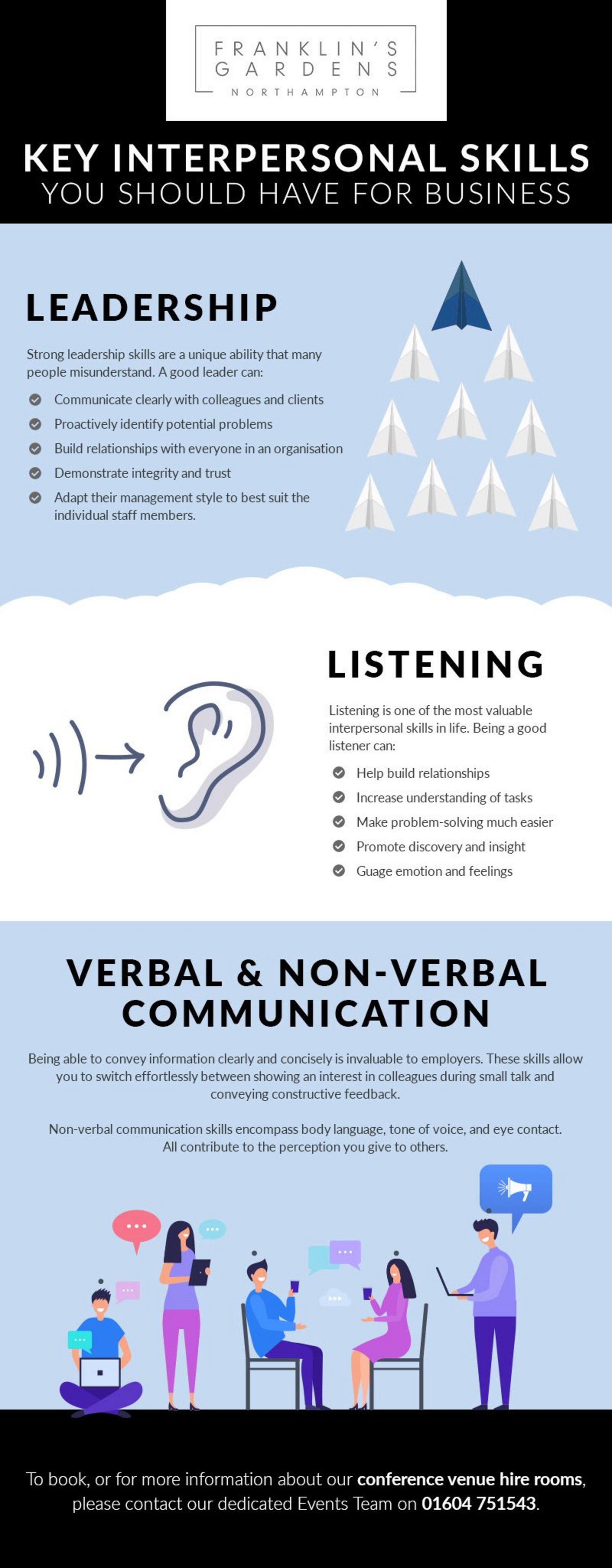If you have strong interpersonal skills, you will excel working in teams, collaborating on projects, and contributing to both informal and formal discussions. Some people are naturally great interpersonal communicators, while others develop these business skills over time. Either way, compelling interpersonal skills are a crucial aspect of someone's professional skill set and a puzzle piece many people are missing.
Hard skills like industry knowledge and copywriting can be tested and measured. Interpersonal skills are soft skills. They’re non-technical and can’t be determined by a test. The term encompasses how you solve problems, resolve conflicts, and collaborate as a team.
Imagine you’re interviewing for a job. The prospective employer has your CV; they know your accomplishments, past experience, and your skills. But they would never offer you the role without meeting face to face first. The interviewing process often involves assessing your interpersonal skills, even if you don’t realise it. It’s your opportunity to demonstrate you can communicate effectively, show you’re a good listener, and all other relevant interpersonal skills.
Interpersonal skills are essential across a variety of industries and sectors. If you speak to people as part of your role, you use interpersonal skills. If you’re a part of meetings and conferences regularly, these skills form a crucial part of your role. Interpersonal skills cover a broad range of attributes that all contribute to how successful you will be in business.
How Do Strong Interpersonal Skills Benefit You In Business?
- Leadership
- Listening
- Verbal & Non-Verbal Communication

Leadership
Strong leadership skills are a unique ability that many people misunderstand. A good leader can communicate clearly with colleagues and clients, proactively identify potential problems, and build relationships with everyone in an organisation. Someone who can act as a leader effectively also demonstrates their integrity as they’re trusted with many responsibilities and have to delegate to other staff.
Leaders in the workplace need emotional intelligence to understand how to communicate with staff and customers. Every individual is unique, each requires a different way of management. Valuable leaders recognise this and tailor their approach based on circumstances and the person they’re interacting with. Not everyone can be a leader. If you can develop your interpersonal skills and adapt them into a leadership role, this can help you in the workplace as well as make you more valuable to prospective employers.
Listening
Listening is one of the most valuable interpersonal skills in life. Many people misinterpret or misunderstand what someone is saying because they don’t know how to listen. In business, being able to listen helps build relationships, increase understanding of tasks, and make problem-solving much easier. A good listener also shows they’re interested. To do this, maintain eye contact, nod regularly, and don’t interrupt.
Verbal & Non-Verbal Communication
The main framework of interpersonal skills is communication, both verbal and non-verbal. Being able to convey information clearly and concisely is invaluable to employers. Whether it’s to other members of staff or clients, strong verbal communication helps you achieve the goal of a conversation.
There are thousands of scenarios where you have to communicate in business. These skills allow you to switch effortlessly between showing an interest in colleagues during small talk and conveying constructive feedback.
Non-verbal communication skills are just as important. They encompass body language, tone of voice, and eye contact. All contribute to the perception you give to others. Improving your non-verbal communication skills ensures this impression is positive.
Franklin’s Gardens Meeting & Conference Rooms
Interpersonal skills are all about understanding the person or people you’re communicating with. When you’re hosting a meeting or conference, understanding the attendees helps you to convey the message you want. To give yourself the best chance of success, choose a meeting or conference venue that’s professional, unique, and convenient for all attendees.
At Franklin’s Gardens, we're a dedicated events venue with a variety of conference and meeting rooms available. External venues are an essential tool for businesses, don’t miss out on the benefits they offer. Training, presentations, and team-building exercises are all improved by using Franklin’s Gardens as your events venue.
Transform your next meeting and conference, get in touch with Franklin’s Gardens.





